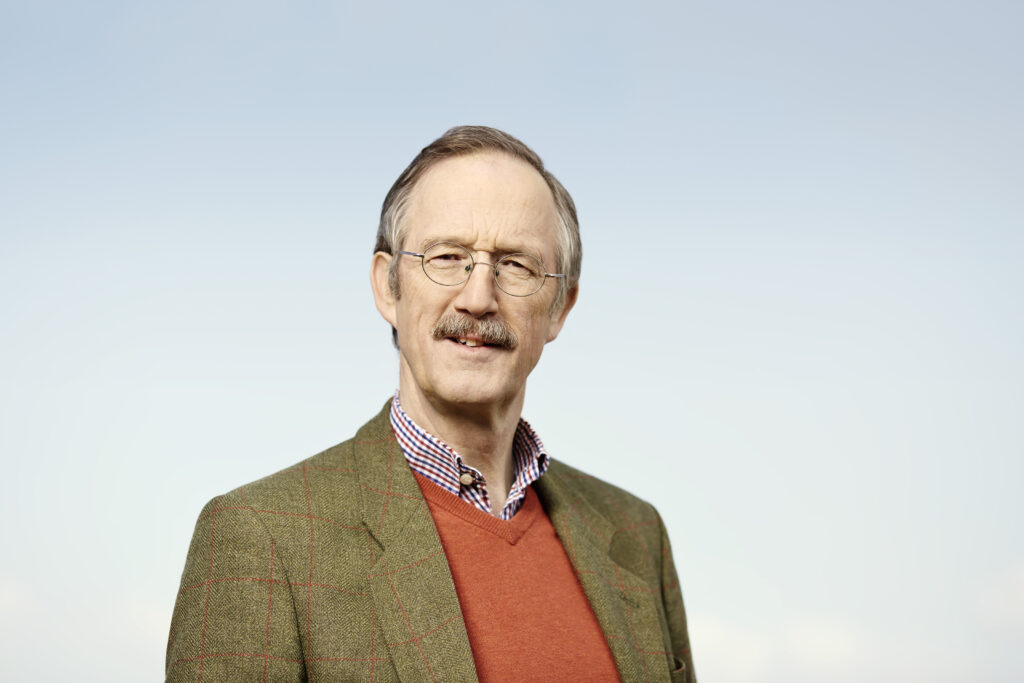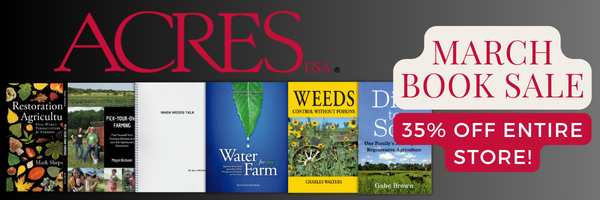Our agriculture — and our diets — must adopt the principles of organic farming and ecological intensification
Buy This Book Today!
Farmers are producing more food than ever before — enough to feed 12 to 14 billion people. Despite this abundance, one in eight people still go hungry, with nearly 850 million facing hunger and another billion undernourished. The reasons behind this are complicated, involving poor governance, wars and unequal distribution of land and income, especially in parts of Africa.
Food waste is another big issue. In Western countries, up to half of all agricultural produce ends up in the trash, while poorer countries suffer huge post-harvest losses due to inadequate storage, transportation and processing facilities. In industrialized nations, we often consume more than our fair share, driven by a high demand for meat. Germans, the French and Americans eat between 130 and 260 pounds of meat each year, and emerging economies are consuming more as well. A large percentage of the crops we grow worldwide feed livestock; the simple math says that if everyone in the world ate meat like an American, we wouldn’t have enough land to grow the grain to feed that many animals. Additionally, the push for biofuels adds to the competition for land.
The obvious solution might seem to be, “Just produce more food!” That’s what agribusiness never tires of telling us. Since expanding farmland isn’t really feasible, they shift the focus to boosting yields. This requires fertilizers and pesticides and genetically altered plants. It may sound plausible, but it still doesn’t work. No system of agricultural production, no matter how productive, could achieve on this earth what would be necessary for all people to live our western lifestyle.
This approach isn’t sustainable, but it doesn’t keep people from trying. The race for land is driven by the “need” to grow renewable raw materials and animal feed, and by speculative investments. Investors and governments are snapping up vast tracts of fertile land in Africa, often pushing out small farmers. This land grabbing only makes the global food situation more unstable.
Just as a lack of productivity is not the main cause of hunger, a system of industrial agriculture, as envisaged by the representatives of large seed and agrochemical multinationals such as BASF and Bayer/Monsanto, is not sustainable. It is precisely the people in rural areas who suffer the most from extreme poverty. They simply cannot rely on expensive inputs like synthetic chemicals, GM seeds and heavy machinery.

In addition, industrial agriculture is a major contributor to climate change, emitting significant greenhouse gases from deforestation, grassland conversion and the use of nitrogen fertilizers and methane from livestock and rice fields. Climate change, in turn, harms the very resources needed for food production, with over 25 million acres of fertile soil lost annually due to overuse and climate impacts. Those with little land and no other income sources are hit hardest by crop failures caused by climate-related events like floods, storms or droughts.
This analysis leads to an unavoidable diagnosis: our agriculture must become ecological, and so must our diets. The counter-model to agribusiness is organic farming, with its extensive repertoire of methods (not merely government certification programs). Through ecological intensification — i.e., the intelligent use of nature with the lowest possible use of additional inputs — farmers can increase yields and thus improve their income situation. These practices combine modern science with traditional farming practices, preserving and promoting biodiversity. Examples from Haiti, the Philippines, Kenya and Ethiopia show that ecological intensification can increase yields and secure incomes without relying on expensive chemicals or patented seeds from industrialized countries.
Moving to sustainable agriculture must involve “cost internalization,” in which the environmental costs, such as nutrient runoff, climate change and biodiversity loss are included in product prices. This would make low-impact production competitive and encourage a shift toward organic farming. Although organic farming still needs improvement to become fully sustainable, it has many benefits. Eating less but better-quality meat, for instance, would be healthier and would help global food security.
Animal production has gone beyond sustainable limits, turning animals into factory goods and causing environmental, animal welfare and human health problems. The heavy use of antibiotics in industrial farming fosters antibiotic-resistant germs, posing health risks. Moreover, industrial farming often relies on monocultures, like soybean production on former rainforest land in South America, to use as animal feed in Europe and East Asia. This deforestation for animal feed highlights the unsustainability of current food production practices.
Support for organic farming and sustainable agriculture is growing among development aid organizations and the United Nations. In India, for example, three states are transitioning entirely to organic farming. This shift is crucial because of the rising costs of traditional farming inputs, like nitrogen fertilizers and phosphate, which are finite and environmentally damaging.
To drive these changes, citizens and voters need to push for policies that promote sustainable agriculture. Public awareness and a collective shift in mindset toward sustainable practices are essential for food security for future generations. Organic farming, while still needing advancement, offers a practical solution that reduces environmental costs and encourages healthier eating habits. By accounting for the true costs of production, including environmental impacts, organic farming can become competitive and sustainable, paving the way to responsibly feed the world’s population.
Tackling global hunger and ensuring food security means moving away from industrial agriculture toward more sustainable practices. Ecological intensification, organic farming and accounting for environmental costs are key steps in this direction. As consumers and as farmers, our choices and actions are crucial in supporting these necessary changes for a sustainable and food-secure future.
Felix zu Löwenstein is a German farmer who has been a leader in the organic movement for decades. He is the author of Food Crash: Why Organic Is the Only Way Forward, newly published by Acres U.S.A.














